
Find Help
More Items From Ergsy search
-

How do interest rate changes affect my mortgage payments?
Relevance: 100%
-
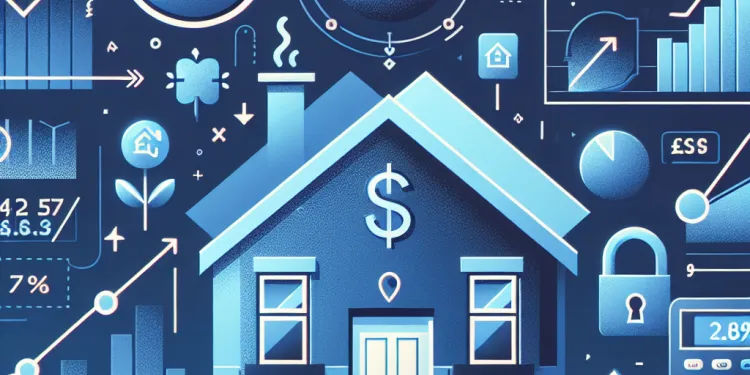
Will my fixed-rate mortgage payments change with interest rate fluctuations?
Relevance: 98%
-

What is a tracker mortgage and how does it respond to interest rate changes?
Relevance: 83%
-
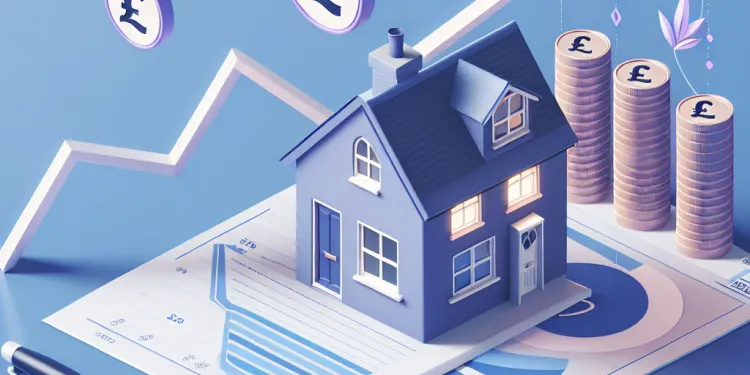
What should I do if I can't afford my mortgage payments due to rising interest rates?
Relevance: 79%
-

What happens to my monthly payments if interest rates rise?
Relevance: 78%
-
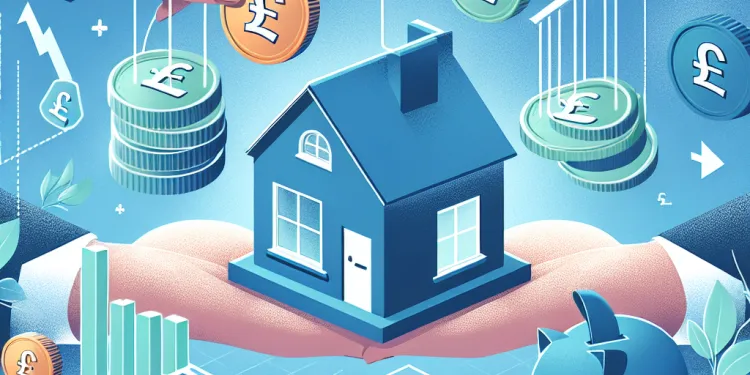
Is it possible to switch my mortgage type if interest rates become unfavourable?
Relevance: 74%
-
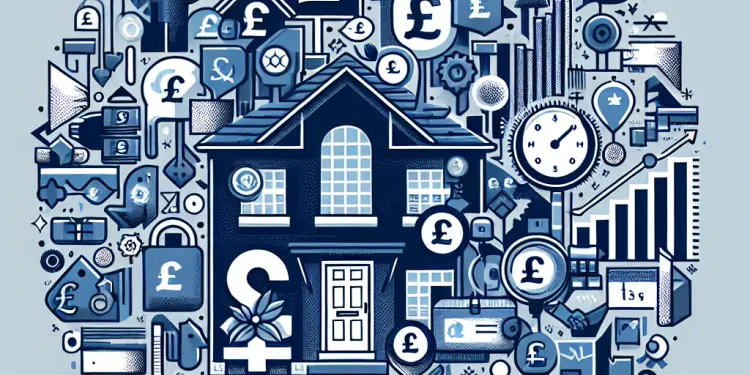
Are first-time buyers affected differently by interest rate changes?
Relevance: 72%
-

Major Banks Announce Changes in Interest Rates: Are You Affected?
Relevance: 69%
-
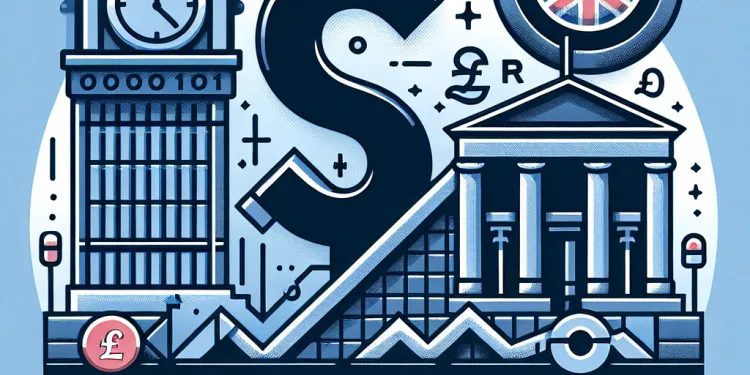
What is an SVR and how does it relate to interest rate changes?
Relevance: 68%
-

What is an 'interest only' mortgage?
Relevance: 67%
-
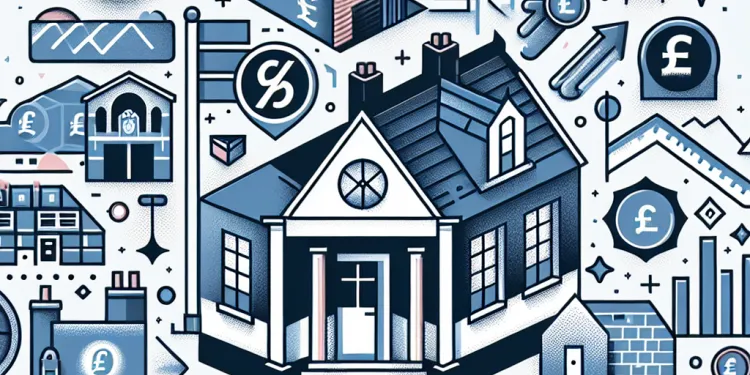
Can my lender change my interest rate without notification?
Relevance: 66%
-
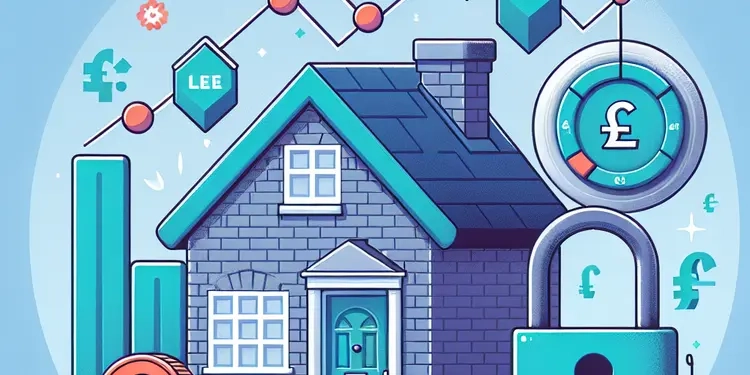
What does it mean to "Fix My Mortgage Rate"?
Relevance: 63%
-
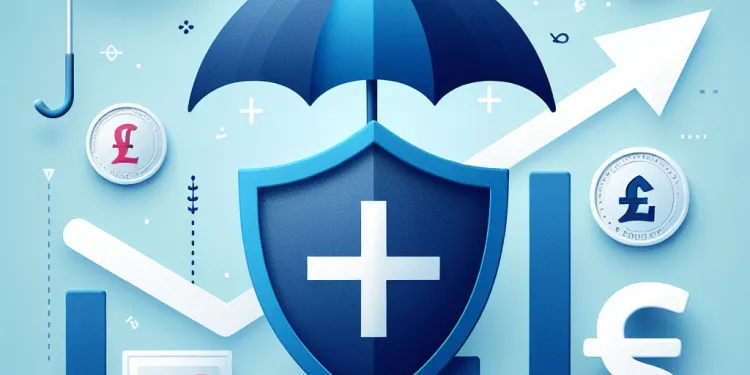
How can I protect myself from rising interest rates?
Relevance: 54%
-
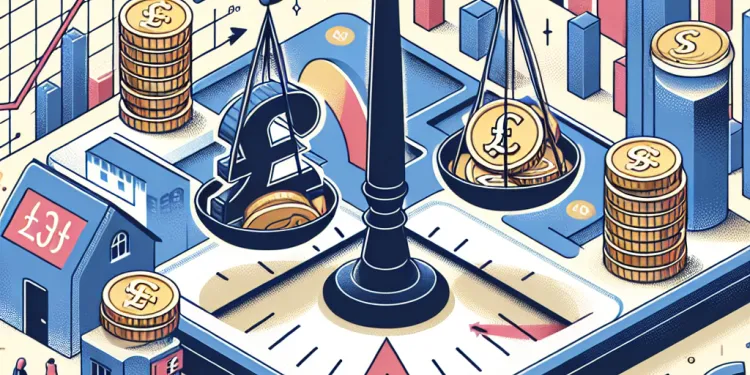
How do economic conditions influence interest rate changes?
Relevance: 54%
-
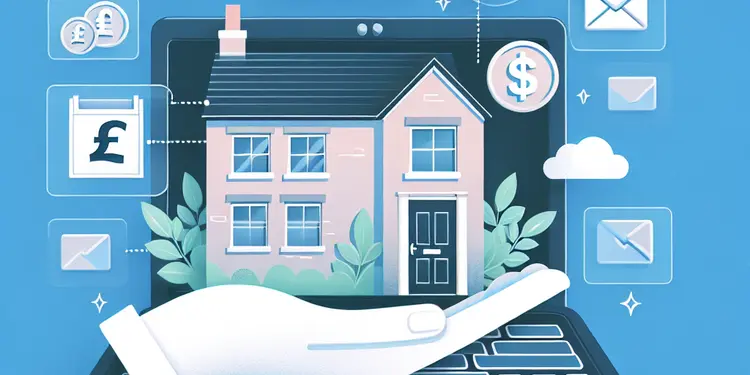
Is there assistance available for rent or mortgage payments?
Relevance: 50%
-

The Ultimate Buy-To-Let Mortgage Breakdown
Relevance: 50%
-

Why do interest rates rise and fall?
Relevance: 50%
-

How does interest rate affect my car finance agreement?
Relevance: 50%
-

Can interest rates on student loans be reduced?
Relevance: 48%
-
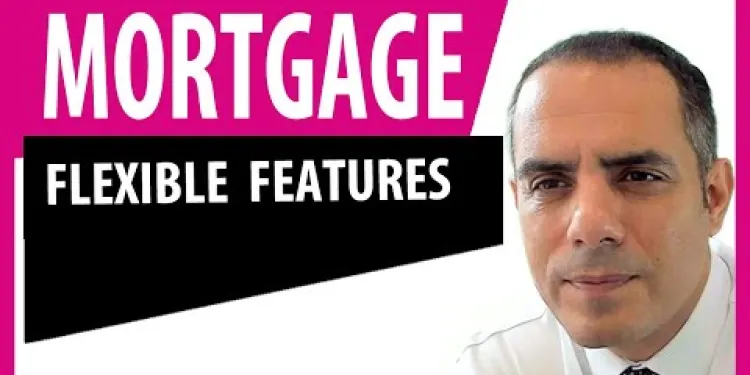
Mortgage Overpayment and Flexible Features Explained
Relevance: 47%
-
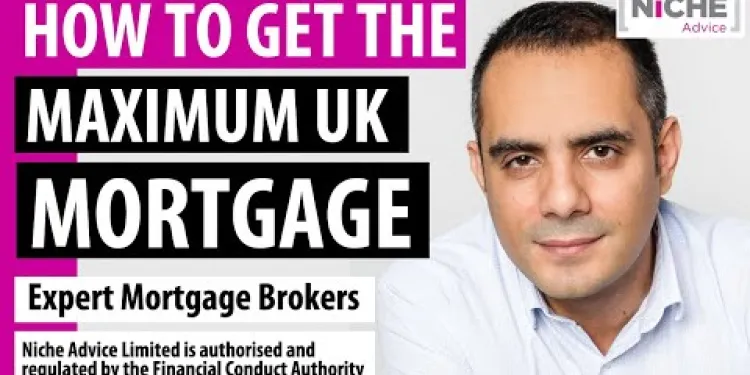
Getting the maximum mortgage in the UK
Relevance: 46%
-

How much can I borrow for a mortgage UK - getting the Maximum Mortgage
Relevance: 45%
-
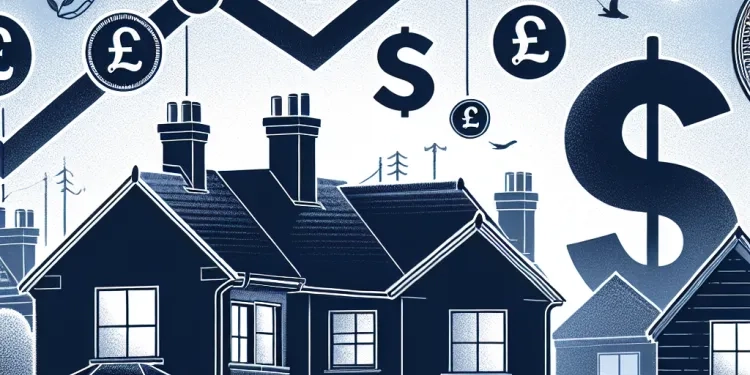
How do interest rate changes affect my mortgage balance?
Relevance: 43%
-
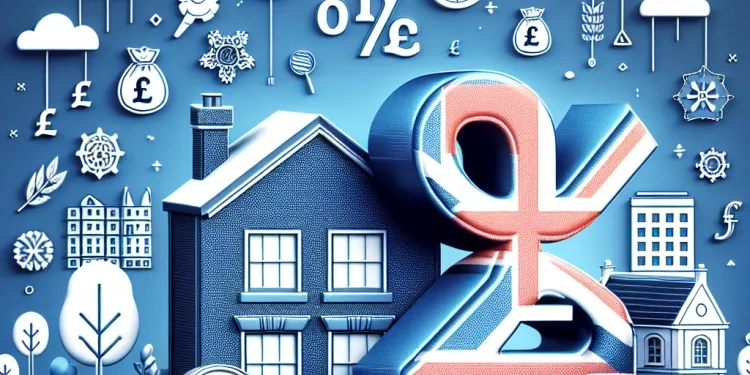
If I overpay on my mortgage, how will interest rate changes affect this?
Relevance: 43%
-
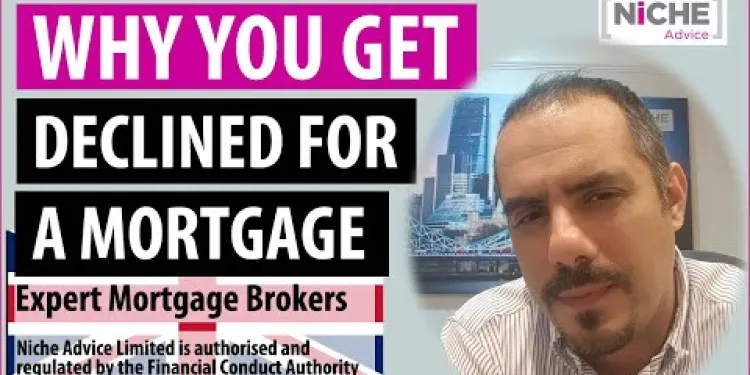
Mortgage Turned Down In The UK - Why mortgage applications are declined
Relevance: 43%
-
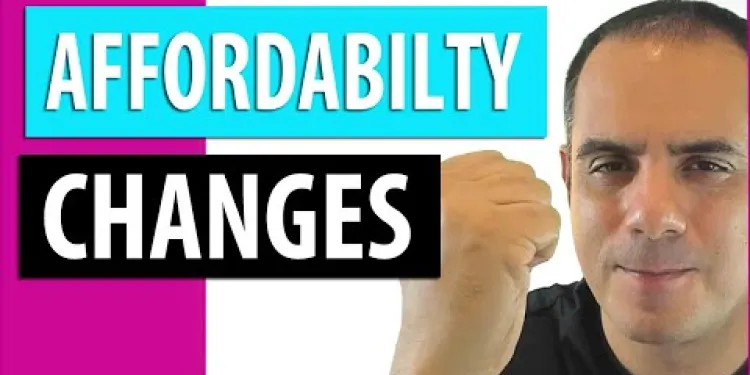
Mortgage Regulator removes the need for further affordability stress tests
Relevance: 43%
-

How do better interest rates help me save money?
Relevance: 42%
-
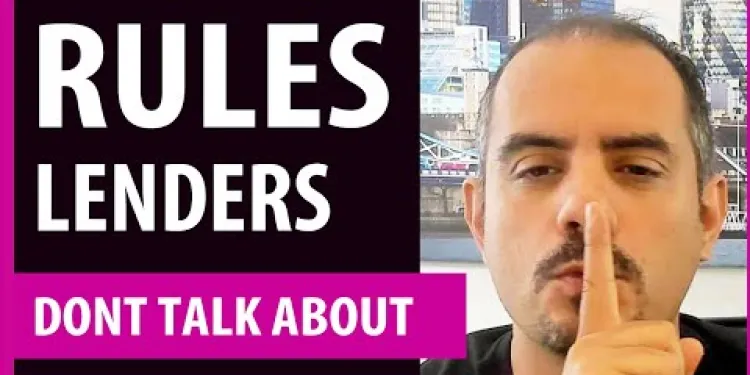
UK Mortgage Rules Lenders Don't Talk About - Debt To Income Ratio
Relevance: 42%
-

First Time Buyer Buy to Let Finance Options. Lending Criteria on Mortgage and Bridging Finance
Relevance: 41%
-

First Time Buyer Buy to Let Finance Options. Lending Criteria on Mortgage and Bridging Finance
Relevance: 40%
-
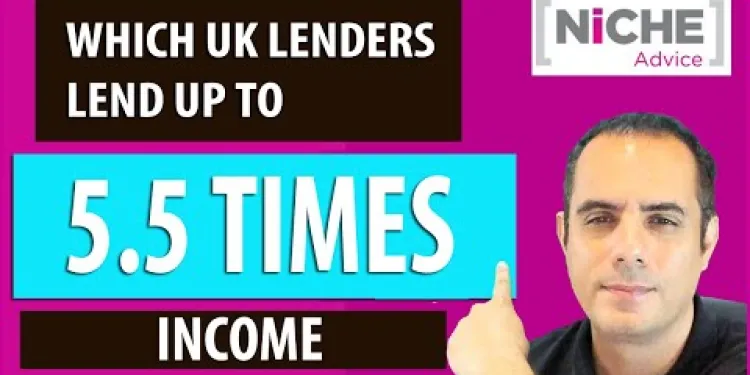
Highest Income Multiple Mortgage Lenders Revealed - Good and Bad Points
Relevance: 39%
-
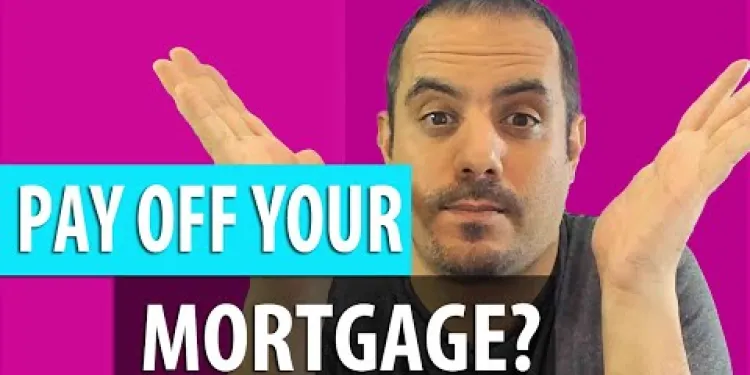
Should you Pay down your Residential Mortgage?
Relevance: 38%
-

HMO Mortgage Truths - how to get the best Finance option including Bridging Loan Criteria
Relevance: 38%
-

Uk Buy to Let for Older Clients - Mortgage Options Tips and Criteria
Relevance: 38%
-

How often do interest rates change?
Relevance: 36%
-
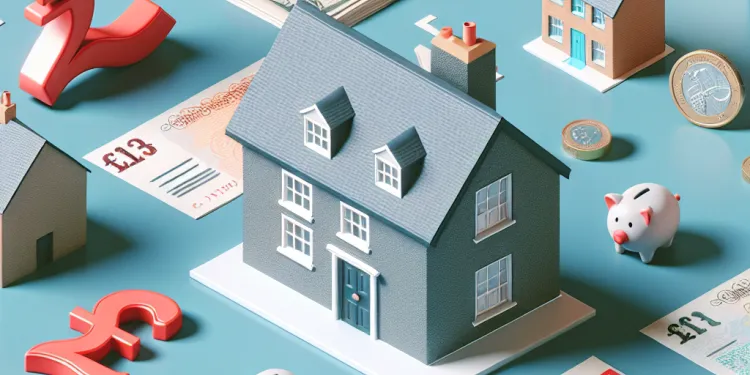
Can Stamp Duty be included in a mortgage in the UK?
Relevance: 36%
-
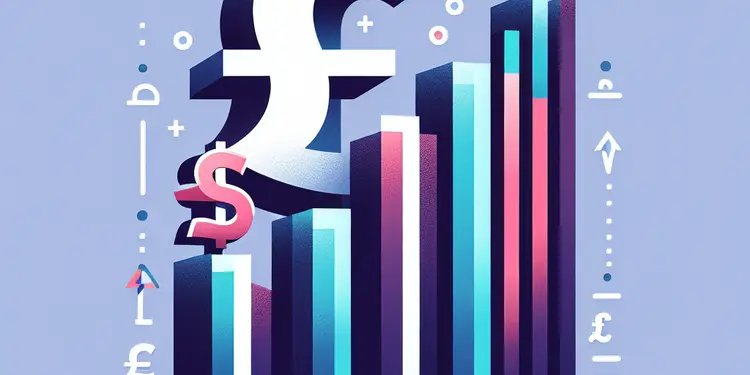
Will interest accrue during deferment?
Relevance: 36%
-
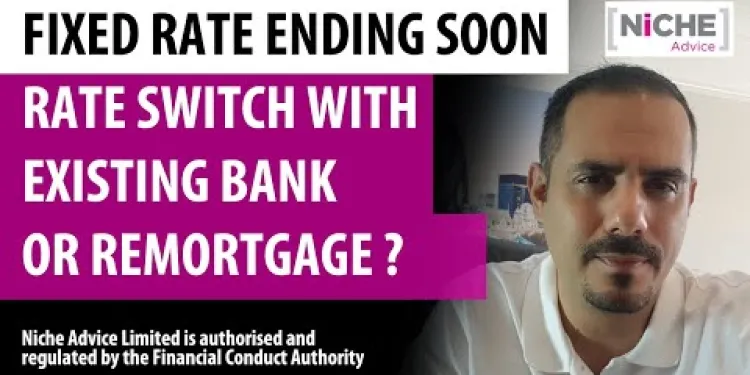
Product Transfer Rate Switch vs Remortgage What's Best
Relevance: 35%
-

Mortgage on Inherited Property - How we can help you with the finance
Relevance: 35%
-
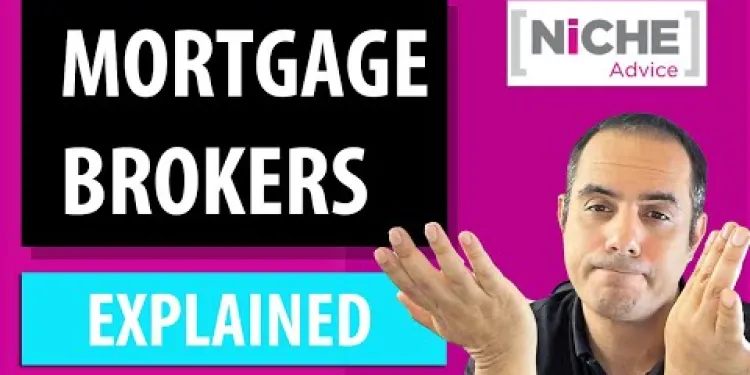
Selecting a Mortgage Broker - how they differ and what to watch out for
Relevance: 35%
How Do Interest Rate Changes Affect My Mortgage Payments?
Understanding Interest Rates
Interest rates are a critical factor in determining the cost of borrowing for mortgages. In the UK, the Bank of England sets the official base rate, which influences how banks and lenders set their own interest rates for loans and mortgages. When the base rate changes, lenders typically adjust their rates, impacting both new and existing mortgage agreements.
Impact on Variable-Rate Mortgages
For homeowners with variable-rate mortgages, changes in interest rates can directly impact monthly payments. A variable-rate mortgage means the interest rate is subject to change over time, often in line with the Bank of England's base rate. If the base rate increases, usually the lender's rate rises too, leading to higher monthly payments. Conversely, a decrease in the base rate could lower payments, providing relief to borrowers.
Effects on Fixed-Rate Mortgages
In contrast, fixed-rate mortgages offer stability, as they lock in the interest rate for a set period. During this term, changes in the base rate do not affect payments. However, at the end of the fixed period, borrowers may face interest rate fluctuations. If interest rates have risen, homeowners may find their new payments are higher when transitioning to a new fixed-rate or a variable-rate deal.
Considering the Wider Economic Impact
Interest rate changes impact the broader economy, influencing inflation, employment, and consumer spending. For homeowners, rising rates can mean higher mortgage payments, reducing disposable income. This could lead to a recalibration of household budgets. On the other hand, lowering rates may increase disposable income and encourage spending, which can stimulate economic growth.
Steps to Take in Response to Rate Changes
Homeowners should regularly review their mortgage terms, especially during times of economic uncertainty or when interest rates are likely to change. Consulting with a financial adviser or mortgage broker can help you understand your options. Evaluating whether a fixed or variable rate best suits your financial situation is crucial, as is considering potential refinancing options to lock in more favorable terms.
How Do Interest Rate Changes Affect My Mortgage Payments?
Understanding Interest Rates
Interest rates are the cost of borrowing money. In the UK, the Bank of England decides the main interest rate. This affects the rates banks use for loans and mortgages. If the main rate changes, banks usually change their rates too. This can affect how much you pay on your mortgage.
Impact on Variable-Rate Mortgages
If you have a variable-rate mortgage, your monthly payments can go up or down. This happens because the interest rate can change. If the main rate goes up, your payments might be more. If the main rate goes down, your payments might be less. This can be good because it gives you a chance to save money.
Effects on Fixed-Rate Mortgages
With a fixed-rate mortgage, your payments stay the same for a set time. This is good because it helps you know how much to budget each month. But when the fixed time ends, your payments might change. If rates have gone up, you might pay more when you switch to a new deal.
Considering the Wider Economic Impact
Interest rate changes can affect the whole economy. High rates can mean you have less money to spend after paying your mortgage. Low rates can leave you with more money to spend. This might help the economy grow because people buy more things.
Steps to Take in Response to Rate Changes
It's important to check your mortgage details often. This is especially true if you think rates might change. Talking to a mortgage expert can help you see what your best options are. You might want to think about changing from a variable to a fixed-rate or seeing if you can get better terms.
Frequently Asked Questions
How do interest rate changes impact my mortgage payments?
Interest rate changes can increase or decrease your mortgage payments, depending on whether rates rise or fall.
What happens to my monthly payments if interest rates rise?
If you have a variable or tracker mortgage, your monthly payments may increase if interest rates rise.
Will my fixed-rate mortgage payments change with interest rate fluctuations?
No, if you have a fixed-rate mortgage, your payments will remain the same until the fixed period ends.
How can I protect myself from rising interest rates?
Consider locking in a fixed-rate mortgage to protect yourself from potential rises in interest rates.
What is a tracker mortgage and how does it respond to interest rate changes?
A tracker mortgage moves in line with the Bank of England base rate plus a set percentage. Your payments will increase or decrease with base rate changes.
What is the impact of an interest rate decrease on my mortgage?
If interest rates decrease and you have a variable or tracker mortgage, your monthly payments may go down.
Can my lender change my interest rate without notification?
Your lender is required to notify you of any changes to your interest rate, especially with variable or tracker mortgages.
How do interest rate changes affect my mortgage balance?
Interest rate changes affect the amount of interest you pay over the life of the loan, influencing the total cost of your mortgage.
What should I do if I can't afford my mortgage payments due to rising interest rates?
Contact your lender as soon as possible to discuss options such as extending the term, switching products or any available support plans.
If I overpay on my mortgage, how will interest rate changes affect this?
Overpaying can reduce your outstanding balance faster, which may lessen the impact of rising interest rates on the interest portion of your payments.
What is an SVR and how does it relate to interest rate changes?
The Standard Variable Rate (SVR) is set by your lender and often reflects changes in the Bank of England base rate, affecting your payments if your mortgage reverts to the SVR.
How often do interest rates change?
Interest rates can change at any time, but the Bank of England's Monetary Policy Committee meets approximately every six weeks to discuss potential changes.
Is it possible to switch my mortgage type if interest rates become unfavourable?
Yes, you may be able to remortgage or switch your mortgage product. However, consider any early repayment charges or fees from your current lender.
How do economic conditions influence interest rate changes?
Economic conditions such as inflation, economic growth, and unemployment can influence the Bank of England's decisions on interest rate adjustments.
Are first-time buyers affected differently by interest rate changes?
Like any borrower, first-time buyers will feel the changes depending on their mortgage type. Fixed rates offer stability, while variable rates could lead to varying payments.
What happens to my home loan payments when interest rates change?
If interest rates go up, you might have to pay more for your mortgage each month. If interest rates go down, you might pay less each month.
What if interest rates go up?
If interest rates go up, you might have to pay more each month. This means your monthly payment could increase.
Helpful tools:
- Ask someone to explain the changes to you.
- Use a calculator to see new monthly payments.
- Look for videos that talk about interest rates.
If you have a variable or tracker mortgage, your payments each month might go up if interest rates go up.
Will my fixed-rate mortgage payments change if interest rates go up or down?
A fixed-rate mortgage means your payments stay the same. They do not change, even if interest rates go up or down.
If you have a fixed-rate mortgage, your payments are always the same.
Tools that can help you:
- Use a calculator to check your monthly payments.
- Ask someone to explain if you are unsure.
- Use pictures or drawing to help understand.
No, if you have a fixed-rate mortgage, your payments stay the same until the fixed time is over.
How can I keep safe from growing interest rates?
Interest rates are a bit like the cost of borrowing money. Sometimes, they go up. Here is how you can stay safe:
- Learn About Interest Rates: Interest rates are numbers that tell you how much extra money you'll pay or earn. Ask a grown-up or a helper to tell you more.
- Budget Your Money: Make a simple plan for how you will use your money each week. You can ask a family member or a teacher for help.
- Save Some Money: Try to keep a little money in a safe place for later. You can add a little bit each time you get money.
- Ask for Help: If you don't understand something about money, ask someone you trust like a parent, teacher, or a helpful adult.
- Use Helpful Tools: There are apps and websites that can help you learn about money. Ask an adult to show you how to use them.
Doing these things can help you feel more ready if interest rates go up.
Think about getting a home loan with a fixed rate. This means your payment won't change, even if interest rates go up.
What is a tracker mortgage and how does it change with interest rates?
A tracker mortgage is a type of loan for buying a home.
Its interest rate goes up or down when the national interest rate changes.
Helpful tools:
- Ask an adult to explain hard words.
- Use a calculator to see how changes affect payments.
- Get advice from someone who knows about money.
A tracker mortgage is a type of loan for buying a house. The amount of money you pay can go up or down. It changes when the Bank of England base rate goes up or down. There is also a small extra amount added. So if the base rate goes up, you pay more. If it goes down, you pay less.
What happens to my home loan if interest rates go down?
If interest rates go down, it can be good for your home loan. You might pay less money each month. This is because the cost to borrow money is lower.
To help with reading, you can:
- Use a ruler to keep your place on the page.
- Ask someone to read it with you.
- Highlight important words.
If interest rates go down and you have a variable or tracker mortgage, the money you pay each month might be less.
Can my lender change my interest rate without telling me?
Your money lender must tell you if your interest rate changes. This is very important if you have a loan where the interest can go up or down.
What happens to my mortgage when interest rates change?
Interest rates are how much you pay to borrow money. Changes in these rates can make your mortgage balance bigger or smaller. This means you might pay more or less each month.
Here is a helpful way to understand:
- If interest rates go up, your monthly payment might be more.
- If interest rates go down, your monthly payment might be less.
Some tools can help you keep track of changes:
- Use a calculator to see how new rates might change your payments.
- Ask someone to explain if you find it confusing.
When interest rates change, the amount of money you pay on your loan changes too. This changes how much your mortgage costs in total.
What can I do if I can't pay my home loan because costs are going up?
If you can't pay for your home loan, don't worry. Here are some things you can try:
- Talk to your bank. They might let you pay less for a little while.
- Make a budget. Write down what money you have and what you spend it on.
- Look for help. Ask family or friends for ideas.
- Check online for tools that help with money.
- Think about talking to a money helper, like a financial advisor.
Talk to your lender right away. You can ask about different choices. They might be able to make your loan longer, change it to something else, or help you in other ways.
What happens if I pay extra on my home loan and interest rates change?
If you pay more money than you have to on your home loan, it can help you pay off the loan faster.
But sometimes the interest rate, which is extra money you pay the bank for borrowing money, can change.
This might mean you pay more or less money each month.
If the interest rate goes up, you might have to pay more money. If it goes down, you might have to pay less.
Tools that can help you understand more:
- Ask someone you trust, like a family member or friend, to explain this to you.
- Use a calculator to see how much your payments might be.
- Ask your bank for help. They can explain what happens if interest rates change.
Paying more money than you owe can help you pay off what you owe faster. This might make it easier to deal with higher interest rates because you'll have less interest to pay.
What is an SVR and how does it relate to interest rate changes?
SVR means Standard Variable Rate. It is a type of interest rate that banks use for loans.
When interest rates change, the SVR can also change. This means the money you pay back each month might go up or down.
Helpful tip: You can ask your bank for more information if the SVR changes. They can tell you how it affects your loan payments.
The Standard Variable Rate, or SVR, is a rate set by your bank or lender. This rate can change, especially if the Bank of England changes its base rate. If your mortgage changes to this SVR, your payments might go up or down.
To understand this better, you can use tools like a calculator to see how payments change. Talking to someone at your bank can also help. They can explain how the SVR works for you.
How often do interest rates change?
Interest rates tell you how much extra money you need to pay back when you borrow money. These rates can change. But how often do they change?
Interest rates do not change all the time. They are usually decided by a country's bank, like The Bank of England or The Federal Reserve.
Sometimes interest rates change every month. Other times they can stay the same for many months.
If you want to keep track, you can:
- Check with your bank to see if rates changed.
- Watch the news for updates on interest rates.
- Use a calculator to see how changes might affect your money.
Interest rates can go up or down at any time. Every six weeks, a group called the Bank of England's Monetary Policy Committee has a meeting. They talk about whether to change the interest rates.
Can I change my mortgage if interest rates go up?
Yes, you might be able to change your mortgage or get a new deal. But watch out! There could be charges or fees if you leave your current lender early.
How do money conditions change interest rates?
Money conditions are about how money moves and is used in a country.
Interest rates are the extra money you pay back when you borrow money from a bank.
When the money in a country changes, interest rates can go up or down.
Here is a simple way to remember:
- If there is more money, interest rates go down. Borrowing is cheaper.
- If there is less money, interest rates go up. Borrowing costs more.
To help understand better, you can:
- Use pictures to see how money and interest rates work.
- Talk to someone who knows about money, like a teacher or a parent.
- Watch simple videos about money and banks.
Things like prices going up, more jobs, and how fast the economy is growing can help the Bank of England decide if they need to change interest rates.
Do interest rate changes affect first-time buyers in a different way?
If you are buying a home for the first time, interest rates are important. They change how much money you need to pay back.
If interest rates go up, your payments might be higher. If they go down, your payments might be lower.
Think about using a calculator to see how much you need to pay each month. You can also ask a grown-up or an expert to help you understand.
If you are buying a house for the first time, your payments might change. It depends on what kind of loan, or mortgage, you have.
With a fixed-rate loan, your payments stay the same. This makes it easier to plan and budget.
With a variable-rate loan, your payments can go up or down. This means you might pay more or less each month.
A good idea is to ask a grown-up or a helper about which option is best for you.
Useful Links
This website offers general information and is not a substitute for professional advice.
Always seek guidance from qualified professionals.
If you have any medical concerns or need urgent help, contact a healthcare professional or emergency services immediately.
- Ergsy carfully checks the information in the videos we provide here.
- Videos shown by Youtube after a video has completed, have NOT been reviewed by ERGSY.
- To view, click the arrow in centre of video.
- Most of the videos you find here will have subtitles and/or closed captions available.
- You may need to turn these on, and choose your preferred language.
- Go to the video you'd like to watch.
- If closed captions (CC) are available, settings will be visible on the bottom right of the video player.
- To turn on Captions, click settings .
- To turn off Captions, click settings again.
More Items From Ergsy search
-

How do interest rate changes affect my mortgage payments?
Relevance: 100%
-

Will my fixed-rate mortgage payments change with interest rate fluctuations?
Relevance: 98%
-

What is a tracker mortgage and how does it respond to interest rate changes?
Relevance: 83%
-

What should I do if I can't afford my mortgage payments due to rising interest rates?
Relevance: 79%
-

What happens to my monthly payments if interest rates rise?
Relevance: 78%
-

Is it possible to switch my mortgage type if interest rates become unfavourable?
Relevance: 74%
-

Are first-time buyers affected differently by interest rate changes?
Relevance: 72%
-

Major Banks Announce Changes in Interest Rates: Are You Affected?
Relevance: 69%
-

What is an SVR and how does it relate to interest rate changes?
Relevance: 68%
-

What is an 'interest only' mortgage?
Relevance: 67%
-

Can my lender change my interest rate without notification?
Relevance: 66%
-

What does it mean to "Fix My Mortgage Rate"?
Relevance: 63%
-

How can I protect myself from rising interest rates?
Relevance: 54%
-

How do economic conditions influence interest rate changes?
Relevance: 54%
-

Is there assistance available for rent or mortgage payments?
Relevance: 50%
-

The Ultimate Buy-To-Let Mortgage Breakdown
Relevance: 50%
-

Why do interest rates rise and fall?
Relevance: 50%
-

How does interest rate affect my car finance agreement?
Relevance: 50%
-

Can interest rates on student loans be reduced?
Relevance: 48%
-

Mortgage Overpayment and Flexible Features Explained
Relevance: 47%
-

Getting the maximum mortgage in the UK
Relevance: 46%
-

How much can I borrow for a mortgage UK - getting the Maximum Mortgage
Relevance: 45%
-

How do interest rate changes affect my mortgage balance?
Relevance: 43%
-

If I overpay on my mortgage, how will interest rate changes affect this?
Relevance: 43%
-

Mortgage Turned Down In The UK - Why mortgage applications are declined
Relevance: 43%
-

Mortgage Regulator removes the need for further affordability stress tests
Relevance: 43%
-

How do better interest rates help me save money?
Relevance: 42%
-

UK Mortgage Rules Lenders Don't Talk About - Debt To Income Ratio
Relevance: 42%
-

First Time Buyer Buy to Let Finance Options. Lending Criteria on Mortgage and Bridging Finance
Relevance: 41%
-

First Time Buyer Buy to Let Finance Options. Lending Criteria on Mortgage and Bridging Finance
Relevance: 40%
-

Highest Income Multiple Mortgage Lenders Revealed - Good and Bad Points
Relevance: 39%
-

Should you Pay down your Residential Mortgage?
Relevance: 38%
-

HMO Mortgage Truths - how to get the best Finance option including Bridging Loan Criteria
Relevance: 38%
-

Uk Buy to Let for Older Clients - Mortgage Options Tips and Criteria
Relevance: 38%
-

How often do interest rates change?
Relevance: 36%
-

Can Stamp Duty be included in a mortgage in the UK?
Relevance: 36%
-

Will interest accrue during deferment?
Relevance: 36%
-

Product Transfer Rate Switch vs Remortgage What's Best
Relevance: 35%
-

Mortgage on Inherited Property - How we can help you with the finance
Relevance: 35%
-

Selecting a Mortgage Broker - how they differ and what to watch out for
Relevance: 35%


